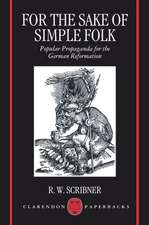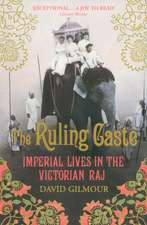The Politics of Rural Life: Political Mobilization in the French Countryside 1846-1852
Autor Peter McPheeen Limba Engleză Hardback – 28 mai 1992
Preț: 847.52 lei
Preț vechi: 1286.44 lei
-34% Nou
Puncte Express: 1271
Preț estimativ în valută:
162.22€ • 176.27$ • 136.36£
162.22€ • 176.27$ • 136.36£
Carte tipărită la comandă
Livrare economică 09-15 aprilie
Preluare comenzi: 021 569.72.76
Specificații
ISBN-13: 9780198202257
ISBN-10: 0198202253
Pagini: 320
Ilustrații: 13 maps
Dimensiuni: 144 x 223 x 24 mm
Greutate: 0.56 kg
Editura: Clarendon Press
Colecția Clarendon Press
Locul publicării:Oxford, United Kingdom
ISBN-10: 0198202253
Pagini: 320
Ilustrații: 13 maps
Dimensiuni: 144 x 223 x 24 mm
Greutate: 0.56 kg
Editura: Clarendon Press
Colecția Clarendon Press
Locul publicării:Oxford, United Kingdom
Recenzii
`Frequently one reads books with one good idea in them: it is rare to find a work with three. Peter McPhee's The Politics of Rural Life is just such a book ... It would be an understatement to say that this is an ambitious work. Despite the complexity of the subject matter and the intricacy of the debates which surround the issues, McPhee's book is both accessible and coherent ... `The Political Geography of France', which includes McPhee's eloquent plea for a new historiographical approach to rural society. All historians, and anyone interested in the development of french political life, would benefit from reading this chapter alone ... The Politics of Rural Life seems set to become a standard work on this complex topic.Modern and Contemporary France 1993
`McPhee goes over some old ground, as well as some more recently added territory, but in a fresh and provocative way which offers new insights. ... McPhee has presented a convincing synthesis. ... fine book.'John M. Merriman, French History
'a brisk and passionate narrative ... an extended critique of the historiography of 1848'R.A. Jonas, University of Washington, Choice, Apr '93
'This is indeed an important and stimulating book, which deserves a place on the shelves of all interested scholars.'Malcolm Crook, The Agricultural History Review
' McPhee's work is a welcome addition to the studies that are demonstrating the complexity of peasant responses to the modern world.'Liana Vardi, The Journal of Peasant Studies, Vol. 21, No. 1, Oct '93
'Peter McPhee's new book is both an admirable synthesis of recent work on the French Second Republic and an effort of his own to explain why peasants made the political choices they did... McPhee's command of the literature is impressive as is his ability to shape it into a framework of narrative and analysis that does justice to the complexity of the issues at hand. McPhee makes a provocative case for the relative autonomy of rural politics and for the need to view that politics on its own terms.Edward Berenson, Journal of Historical Geography, No. 20, Vol. 1, 1994
`McPhee goes over some old ground, as well as some more recently added territory, but in a fresh and provocative way which offers new insights. ... McPhee has presented a convincing synthesis. ... fine book.'John M. Merriman, French History
'a brisk and passionate narrative ... an extended critique of the historiography of 1848'R.A. Jonas, University of Washington, Choice, Apr '93
'This is indeed an important and stimulating book, which deserves a place on the shelves of all interested scholars.'Malcolm Crook, The Agricultural History Review
' McPhee's work is a welcome addition to the studies that are demonstrating the complexity of peasant responses to the modern world.'Liana Vardi, The Journal of Peasant Studies, Vol. 21, No. 1, Oct '93
'Peter McPhee's new book is both an admirable synthesis of recent work on the French Second Republic and an effort of his own to explain why peasants made the political choices they did... McPhee's command of the literature is impressive as is his ability to shape it into a framework of narrative and analysis that does justice to the complexity of the issues at hand. McPhee makes a provocative case for the relative autonomy of rural politics and for the need to view that politics on its own terms.Edward Berenson, Journal of Historical Geography, No. 20, Vol. 1, 1994
















